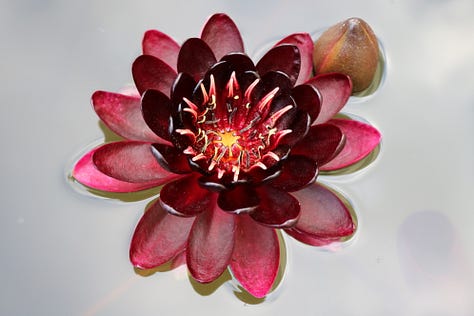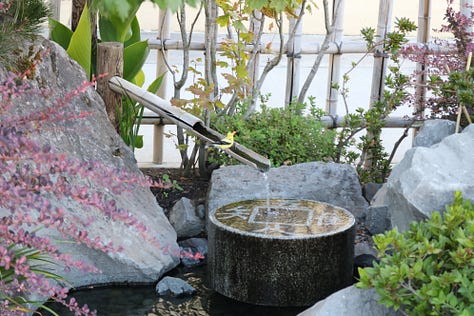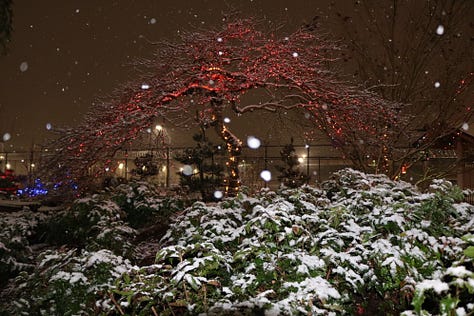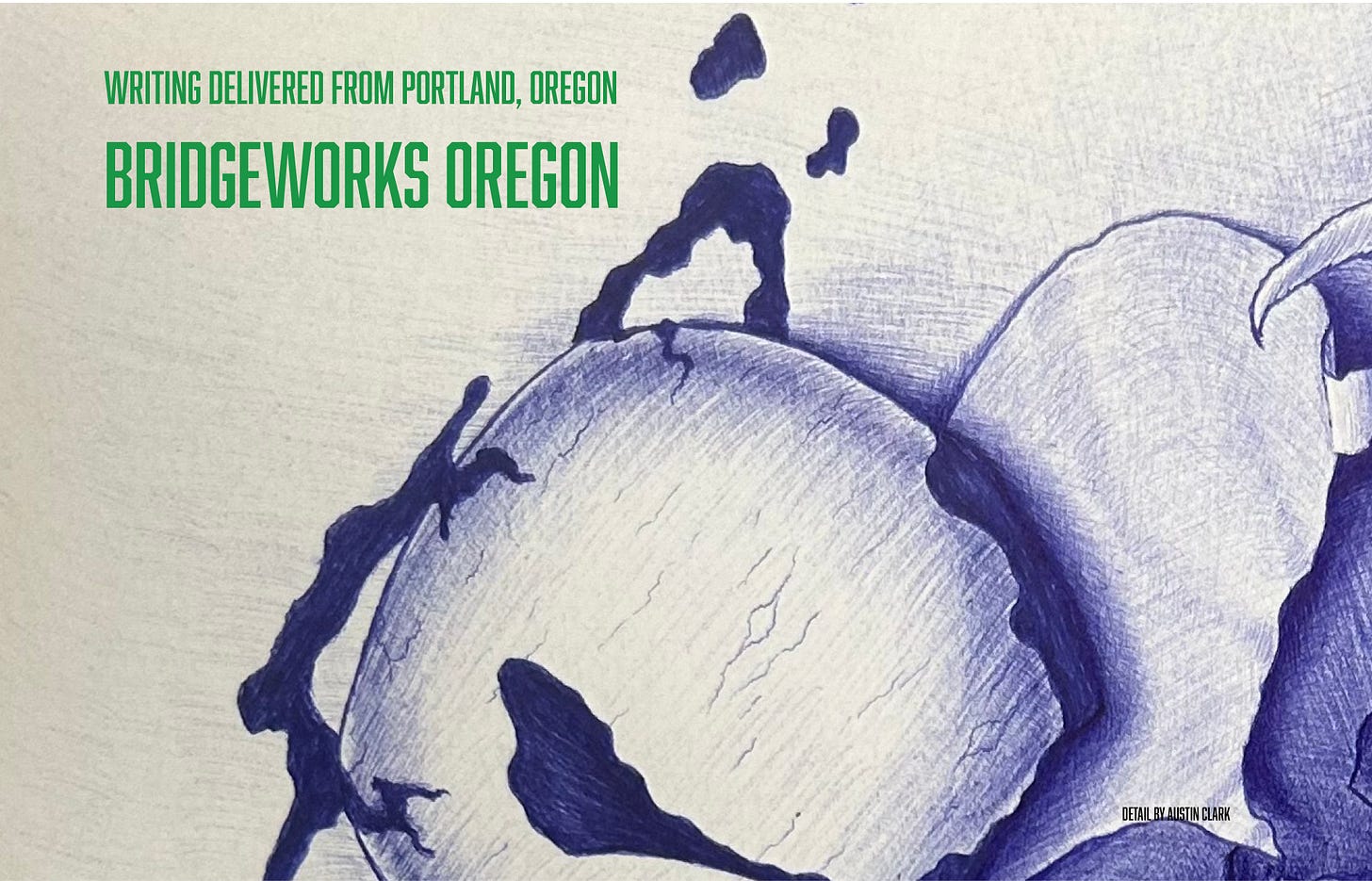In 2018, Danny and I met with OSP’s Asian Pacific Family Club (APFC) around a folding table. They asked us to play a concert on the yard to raise funds for the building of a prisoner-initiated project, the Memorial Healing Garden. The garden’s creation story can be told with a few brush strokes, but truly it is a complex tale equal parts back-breaking work, trust among all parties, and kismet. What started as a sketch on a piece of cardboard with a pie-in-the-sky dream of a koi pond has become a sacred space in the center of a prison yard. All funds were raised through prisoner contributions, prisoner-written grants, community support, and an outpouring of material donations. The Department of Corrections, the staff and administrators at OSP were fully supportive.
The garden is a living legacy, a learning laboratory, a memorial for the dead, and a space that knits together broken souls. Does this seem overstated? Walk a few paces through the main corridor and you pass doorways that lead to steel and concrete cells (some with as many as 40 cells per block, stacked five stories tall) until you walk outside to chain-link fence surrounding an authentic Japanese garden designed by Hoichi Kurisu. This contrast stops you in your tracks, you have entered another possibility for how to help people rebuild themselves and prepare to return to our communities. The elder HK, (as he is affectionally known) built the space working side-by-side with the men. There were people in the work crew who hadn’t touched a tree in 20 years, and found themselves finally able to sit under one of the little pines at they ate lunch. They built a garden, they rebuilt their self esteem, they are passing those lessons on to their compatriots inside.
The garden acts as the prison’s calendar. Lights are hung for the holidays, ducklings hatch in the spring, glorious blooms mark summer and finally, the intensity of Japanese maple vibrate autumn color against the prison blue and gray. As point of pride, the garden stewards wish to share the beauty of this place with family and friends, so they have published a 2024 calendar, available to folks who donate to fund to maintain the garden.









The Memorial Healing Garden is a muse to Jimmy Kashi, president of the APFC. Jimmy the emcee, the host. He is the person who checks on your well-being, the person who will tease just the right amount, and the person who makes sure that the garbage is packed up to be thrown away at the end of the meeting. As I read Reflection from Within, I was struck by the picture of Jimmy taking a quiet moment to look down at the garden he helped build, and his musing about world view of others. In our workshop, we talk about how writing builds our empathetic muscles. Sure we write to express ourselves, our points-of-view, to record something that lives beyond our lives. More importantly, we must get into the shoes of our audience, think about how it is for them to read or listen to our stories. What is their experience? How do they experience walking past the garden?
Paired with Jimmy is another vet, former Marine Jeff Witt. If you haven’t yet read any of his work on PonyXpress, do yourself a favor. We had the pleasure this week of hearing Jeff read his piece I Remember. Jeff is an electrician at OSP — low and behold, he often works in the dark. In his poem The Lotus he focuses his attention on the subterranean. I think of the bodily knowledge one gains relying on feel rather than eyesight to twist and connect the wires that carry the circuit. During these winter months, we have been talking in our workshop about the seeds of ideas underground, stored away. This winter pause is energy storing for spring. In anticipation, plant a bulb, make a sketch, set an intention, put the kettle on the stove. | TDS


